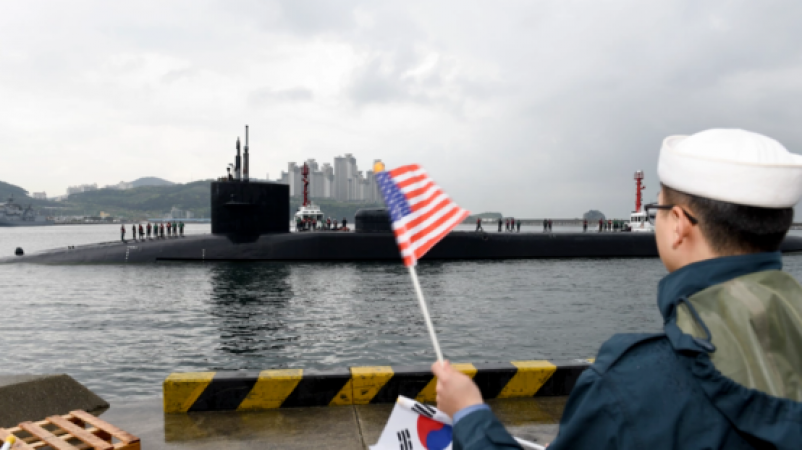
Pyongyong: the North Korean military accused the Pentagon of inflaming tensions to a critical level and bringing the region closer than ever to a nuclear disaster, warning that any error could result in a "shocking accident."
The Defence Ministry in Pyongyang declared that the US's provocative military action—its plan to send nuclear-armed submarines to South Korea on a rotating basis—put the Korean Peninsula on the verge of a nuclear conflict.
"The US attempt to introduce strategic nuclear weapons into the Korean peninsula is the most overt nuclear blackmail against the DPRK and its neighbours and a grave threat and challenge to the regional and global peace and security," an expert warned.
Also Read: Saudi Arabia sees a 4.8% increase in new SMEs, with 1.2 million total in Q1
The US "will surely have to pay a dear price for its provocative air espionage," Pyongyang continued, accusing it of sharply increasing its spying efforts and repeatedly violating North Korea's airspace.
Also Read: Meetings are held in Addis Abeba to talk about ways to end the conflict in Sudan
The spokesman urged the US to "recall the tragic fate" of its aerial spy assets, specifically the downing of the EC-121 plane in 1969 and OH-58 helicopter in 1994. "There is no guarantee that a shocking accident such as the downing of a US Air Force strategic reconnaissance plane will not happen in the East Sea of Korea," the spokesman said.
The US is "near the critical point to be concerned," according to North Korea, which asserted that it has been "maintaining [the] utmost patience and self-control," but cautioned that "everything has its limit."
Also Read: In the Saada explosion, 2 Yemeni demining workers perished
This year, the US and South Korea conducted more frequent joint air and naval exercises, during which the Pentagon sent out strategic assets like heavy bombers and an aircraft carrier. North Korea typically responds to US deployments close to its territory with verbal threats, its own drills, or new weapon tests.
A programme of increased nuclear cooperation was announced in April by US President Joe Biden and his South Korean counterpart, Yoon Suk-yeol. For the first time in nearly 50 years, the US will periodically send nuclear-capable submarines and bombers to the Asian nation under the Washington Declaration.
A US nuclear-powered submarine with cruise missiles but no nuclear weapons made a port call at Busan last month, despite the fact that no precise deployment date has been disclosed.